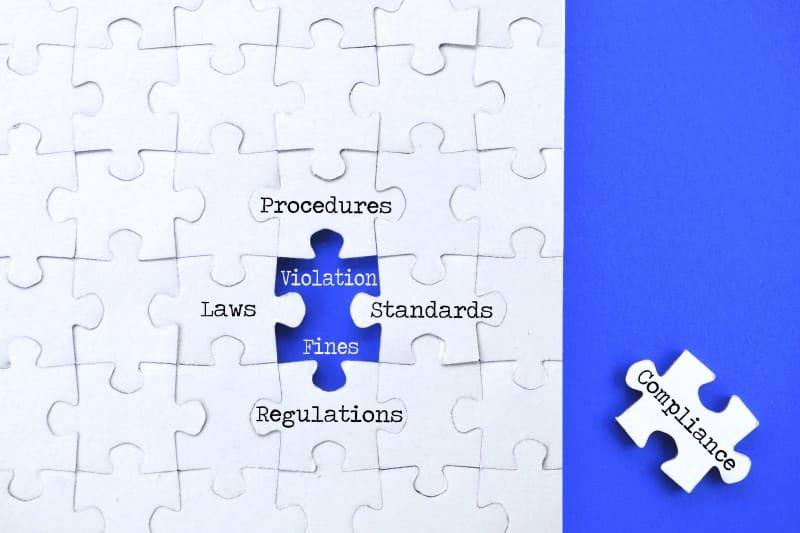Table of Contents
HIPAA rules and regulations may sometimes seem complex to follow, but they have been made to put safeguards in place for privacy protection. These rules and regulations help to ensure that there are no unwanted consequences. In the U.S. healthcare system, many organizations need to deal with sensitive patient information, which can be misused if it falls into the wrong hands. Thus, organizations need to follow HIPAA compliance regulations so that the information stays protected.
HIPAA compliance is crucial, and it is also complex and time-consuming. Many organizations fail to properly comply with the rules and regulations due to minor mistakes they fail to detect or address. This article will focus on five common blunders which you need to avoid so that you can follow HIPAA compliance regulations properly.
Blunders to avoid while following HIPAA compliance regulations
#1: Not updating rules and regulations frequently
HIPAA regulations are frequently updated. Just look at the current situation – COVID-19 has caused some rules to be relaxed to ensure better healthcare services. While it may seem that regularly updating policies is a cumbersome task, it is necessary. HIPAA requires that you comply with the updated rules whenever changes have been made – many organizations fail to do this and can suffer in the future. The policies your organization needs to follow need to be reviewed and updated regularly to ensure that you are complying with the latest regulations set by HIPAA.

#2: Not making your policies and procedures search-friendly
Being able to easily search and locate the policies and procedures your organization follows is crucial. For instance, in the case of an audit, you need to be able to search and show the documents in a timely manner to prove that you are complying with the rules and regulations. Making the documents containing your policies search-friendly can save a lot of time during training, inspections, and risk assessment. The main blunder many organizations make is that they do not keep everything in a centralized location – everything is scattered. Ensure that everything is in one location, is accessible by those who need it, and is easily searchable for optimum efficiency.
#3: Lack of proper training management and tracking
This tip refers to keeping track of specific employees who have been trained on certain topics. For instance, a set of employees may have been trained on the Breach Notification Rule, while another set was trained on a topic from the Security Rule. Unfortunately, many organizations fail to keep track of who was trained on what. If proper training management and tracking system is in place, this problem can be overcome quite easily.
#4: Not conducting internal audits
Audits can be long and strenuous but are necessary to prove that you have been following everything accurately. The best way to prepare yourself for an audit is by conducting internal audits. Not conducting internal audits is like going into a fight without any defense – the opponent is going to hit you at one point or another. Many organizations fail to conduct periodic internal audits, postponing them until the actual auditors show up. Conducting internal audits can show you where your risks and vulnerabilities are so that you can address them. Not only does it help you prepare better for audits, but it also helps you detect the slightest issues in your system.
#5: Not using HIPAA compliance software
Following all the HIPAA compliance regulations can be quite cumbersome and a huge administrative burden, taking up considerable resources in the process. Organizations can easily remove that burden by using HIPAAReady. It is a robust HIPAA compliance software that has been made just for you. It keeps all the documentation in a centralized location, ensures training management and tracking, helps you search for policies and procedures effortlessly, and can help you conduct internal audits to find vulnerabilities and address them. Prepare for audits the best way and ensure you are following HIPAA compliance regulations with HIPAAReady.
What is CloudApper AI Platform?
CloudApper AI is an advanced platform that enables organizations to integrate AI into their existing enterprise systems effortlessly, without the need for technical expertise, costly development, or upgrading the underlying infrastructure. By transforming legacy systems into AI-capable solutions, CloudApper allows companies to harness the power of Generative AI quickly and efficiently. This approach has been successfully implemented with leading systems like UKG, Workday, Oracle, Paradox, Amazon AWS Bedrock and can be applied across various industries, helping businesses enhance productivity, automate processes, and gain deeper insights without the usual complexities. With CloudApper AI, you can start experiencing the transformative benefits of AI today. Learn More


















